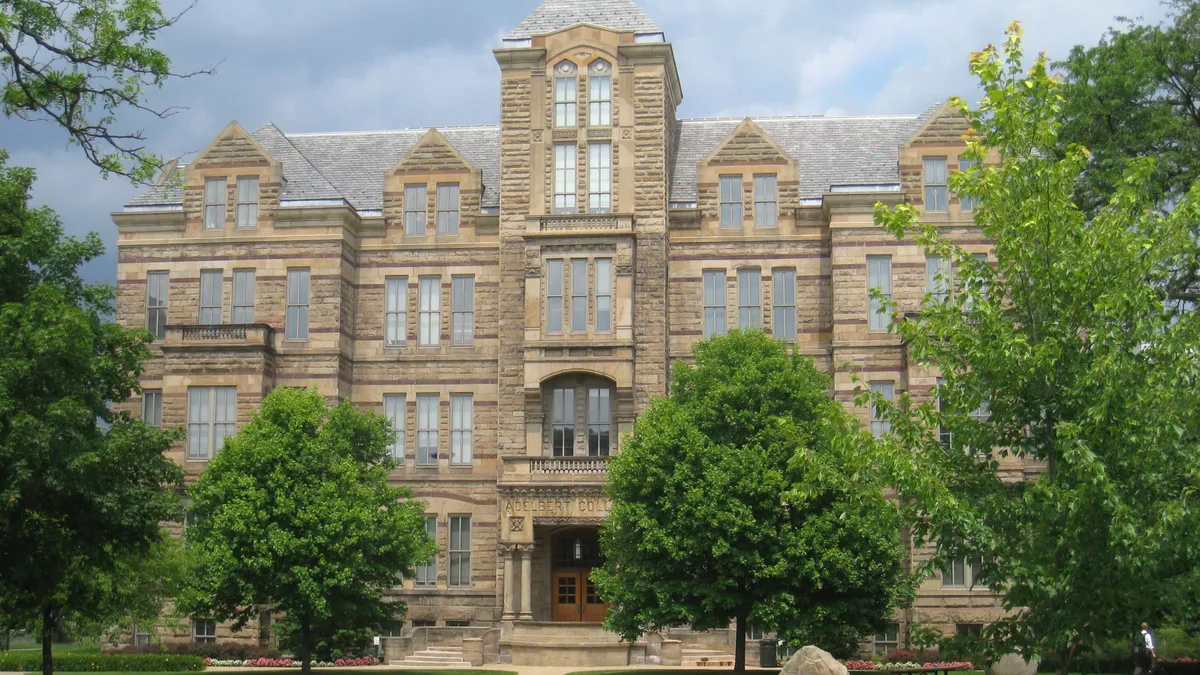Dive Brief:
- Case Western Reserve University, in Cleveland, is adding a think tank to explore blockchain and other technology research interests such as the Internet of Things, and virtual and augmented reality, according to Cleveland.com.
- The Cleveland Blockchain and Digital Futures Hub will bring the private research university together with local business, government, technology and academic groups. It is part of the "Blockland" initiative, which strives to make northeast Ohio a center for research and development for the digital ledger technology.
- A permanent location, funding and administrative team have not yet been identified for the Hub, and Cleveland.com reports the group has only met in person a handful of times.
Dive Insight:
The think tank was announced at a conference in Cleveland this week dedicated to exploring and expanding the use of blockchain in the city. However, "What the conference didn't do was lay out a step-by-step route to Cleveland’s success as a hub for blockchain," wrote Cleveland.com reporter Emily Bamforth.
Nonetheless, the region's higher education institutions — which include a mix of public and private two- and four-year colleges — are expected to play a critical role, with many already exploring blockchain. Baldwin Wallace University, for example, plans to offer professional development certificates in the technology next year, and local colleges are exploring adding blockchain to technology degrees.
Northeast Ohio is home to several industries with proven uses for blockchain, including distribution and logistics as well as manufacturing. And while there are local tech jobs in those industries for the taking, a May 2018 report by one regional economic development group found there aren't enough workers with the necessary skills to fill all of them. By 2020, 65% of jobs in the state will require a postsecondary credential, while just 54% of northeast Ohio residents had one in 2016.
Many U.S. cities are doubling down on blockchain, getting a head start on an industry that is beginning to prove its potential. As more information becomes digitally stored and managed, cities can use blockchain as a foundational element of restoring trust and ensuring security, according to a May whitepaper from the National League of Cities. It can also help improve the efficiency and reliability of public services.
Colleges are playing a critical role in their cities' and regions' blockchain initiatives. For example, the Austin Blockchain Collective, which advocates for blockchain use in the Lone Star State's capital city, has partnered with The University of Texas at Austin Dell Medical School's healthcare working group as well as the UT Austin McCombs School of Business to explore uses for blockchain.
And in Albuquerque, New Mexico, Central New Mexico Community College is implementing blockchain internally and throughout the city. As of August 2018, all students are offered the option of a blockchain diploma, and the college is working with the state attorney general's office and the City of Albuquerque to develop blockchain uses and train workers in the technology.









